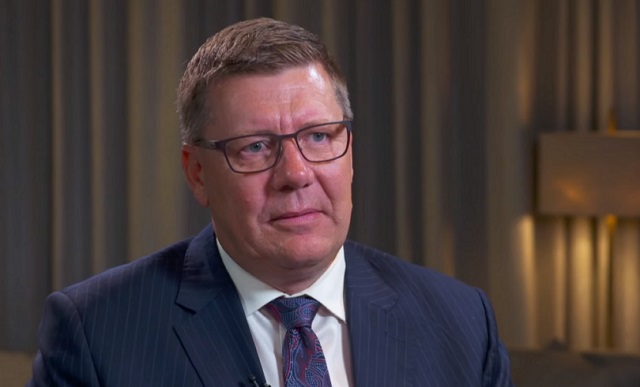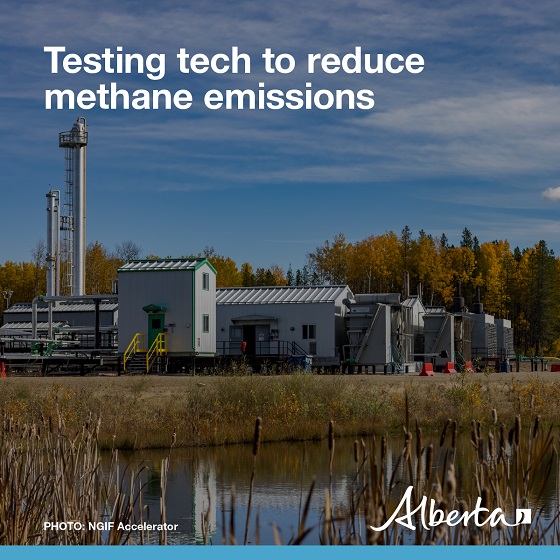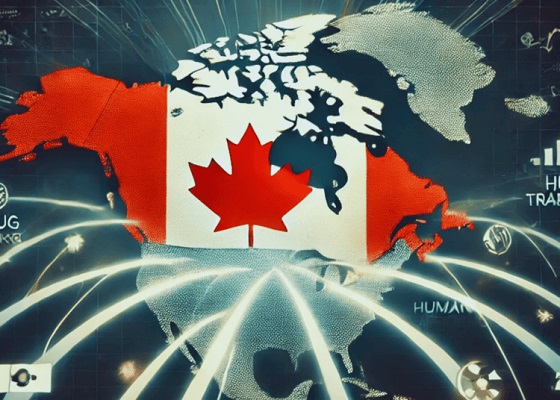Alberta
Alberta backs Saskatchewan in court battle defending parental consent for ‘pronoun changes’

From LifeSiteNews
‘Saskatchewan and Alberta agree that the key figures in children’s lives are their parents, and our provinces are both committed to supporting families and children so that they can work through unique needs together,’ the provinces wrote in a joint letter in defense of parental rights.
Alberta has announced its support of Saskatchewan’s policy requiring parental consent for children to go by different pronouns at school amid a lawsuit against the policy by an LGBT activist group.
On April 9, Alberta Minister of Justice and Attorney General Mickey Amery and Saskatchewan Minister of Justice and Attorney General Bronwyn Eyre revealed that Alberta will intervene in Saskatchewan’s Parents’ Bill of Rights case challenging their new pro-family laws.
“Saskatchewan and Alberta agree that the key figures in children’s lives are their parents, and our provinces are both committed to supporting families and children so that they can work through unique needs together,” the joint statement read.
“Notifying parents and requiring their consent before a child’s name or pronouns can be changed in schools, and before classroom discussions about gender identity and other sensitive subjects occur, ensures that the parent-child relationship is respected and paramount,” it continued.
The pronoun policy is just one part of Saskatchewan’s new “Parental Inclusion and Consent Policies,” which also include provisions that ensure parents are allowed to opt their kids out of sex-ed, and that third-party presentations from groups such as Planned Parenthood will be prohibited from taking place.
After the policies were put forth, LGBT activist group UR Pride Centre for Sexuality and Gender Diversity at the University of Regina, represented by Egale Canada, filed a lawsuit to reverse the pro-family laws.
While a judge has ruled in favor of the LGBT group, Saskatchewan Premier Scott Moe announced in response that he will invoke his government’s notwithstanding clause to protect the legislation from the courts.
The notwithstanding clause, embedded in section 33 of the Canadian Charter of Rights and Freedoms, allows provinces to temporarily override sections of the Charter to protect new laws from being scrapped while higher courts make a determination on the constitutionality of the law.
The case is set to be heard in the Saskatchewan Court of Appeal. During the case, Saskatchewan will now be supported by Alberta, which has committed to intervene in the appeal.
“Alberta will seek to advance legal arguments that Saskatchewan’s use of section 33 of the Charter (the Parliamentary Supremacy Clause) should have prevented Saskatchewan’s Court of King’s Bench from reviewing the constitutionality of the Education (Parent’s Bill of Rights) Amendment Act, 2023 legislation,” the province promised.
“This case has the potential to impact not only parental rights across Canada, but also the application of the Parliamentary Supremacy Clause, which has been an integral piece of the Canadian Charter of Rights and Freedoms and the Constitution of Canada since 1982,” it declared.
Similar to Saskatchewan, Alberta recently introduced its much-anticipated pro-family legislation protecting children and parental rights from the worst results of transgender ideology, including banning doctors from medically ‘transitioning’ children, requiring parental consent for pronoun changes in school, and barring men claiming to be women from women’s sports.
Recent surveys have shown that Moe is acting in the interest of Saskatchewan parents by introducing legislation protecting school children from LGBT propaganda.
According to an August 2023 survey, 86 percent of Saskatchewan participants advocated for parental rights, supporting the province’s new approach to the LGBT agenda in schools.
Furthermore, over 40,000 Canadians have pledged their support for Saskatchewan’s fight for parental rights in the classroom, also calling on all other provinces to follow suit.
Additionally, a Saskatchewan teacher wishing to remain anonymous previously told LifeSiteNews that she feels guilty about keeping secrets from parents and supports the decision to keep parents informed.
“I fear that we are not supporting students or parents when we keep secrets,” she explained. “We have many students using alternate names, which sometimes changes frequently during the year, and then are asked by parents if we were aware of the changes after the fact. I feel responsible for keeping the secret and I don’t think it’s fair. I think schools are already taking on too many ‘parent roles’ and it’s important that parents play the ‘parent role’ not teachers!”
Alberta
Alberta’s methane emissions fall 52 per cent

Alberta has cut its methane emissions from the oil and gas sector in half, showing how to reduce emissions and keep powering the world.
As global demand for energy continues to rise, Alberta remains one of the most responsible producers in the world. The province was the first in Canada to set a methane emissions reduction target for the upstream oil and gas sector, and its approach has won international awards and recognition.
This is the message Alberta’s government will take to COP 29. The Alberta approach is working. It is possible to reduce methane emissions and grow the economy, all while delivering the safe, affordable, reliable energy the world will need for generations to come.
According to the latest data from the Alberta Energy Regulator, Alberta has now officially reduced methane emissions from the oil and gas sector by 52 per cent since 2014, even as production has continued rising. The province’s common-sense approach is reducing emissions, creating jobs and growing the economy without punitive federal regulations or caps.
“We do not need Ottawa to tell us how to reduce emissions. In fact, the federal government should learn from Alberta’s success. By working closely with industry and focusing on technology, not costly taxes or unrealistic targets, we can achieve rapid emission reductions while delivering the safe, affordable, reliable energy the world needs.”
Under Alberta’s equivalency agreement with the Government of Canada, the province is in charge of regulating methane emissions. Alberta’s approach is working closely with industry and focusing on achievable results, including early action programs like carbon offsets, implementation of strong provincial regulatory requirements in place for all facilities, and improved leak detection and repair. This is estimated to have saved industry about $600 million compared with the alternative federal regulations that would otherwise have been required.
Since 2020, Alberta has invested $78 million from the industry-funded Technology Innovation and Emissions Reduction program to improve methane monitoring and management. Almost 15,000 well sites and facilities have been reviewed across the province, preventing nearly 17 million tonnes of emissions from being released.
Continuing this momentum, the province recently announced $15 million in funding for the NGIF Emissions Testing Centre to help companies test technologies free of charge in both laboratory and live settings, attract investors and get methane emissions reduction technologies to market faster. Alberta is also engaging with industry to develop a flexible, forward-looking path that will keep reducing emissions while supporting responsible energy production.
“Tourmaline, like other producers in Western Canada, has been diligently reducing methane emission intensity across our field operations, and we are targeting a 55 per cent reduction from 2020 levels by 2027. We operate a world-leading methane emissions testing centre (ETC) at our West Wolf Lake gas plant near Edson, Alberta. At the ETC site, the latest technologies to better measure and mitigate future methane emissions are being developed.”
Minister of Environment and Protected Areas Rebecca Schulz will travel to the 29th Conference of the Parties to the United Nations Framework Convention on Climate Change (COP 29) from Nov. 10 to 16 to share Alberta’s success with the world. Alberta’s environment minister will use the largest global climate summit to promote the province’s effective approach to reducing emissions while keeping energy reliable, secure and affordable.
Alberta’s government is committed to working with national and international partners to advance shared interests that can lead to new opportunities for people and businesses around the world.
Minister Schulz will attend COP29 with one staff member and three department officials. Mission expenses will be posted on the travel and expense disclosure page.
Itinerary for Minister Schulz*
| Nov. 10-11 |
|
| Nov. 12 |
|
| Nov. 13 |
|
| Nov. 14 |
|
| Nov. 15 |
|
| Nov. 16 |
|
*Subject to change.
Quick facts
- The Alberta Energy Regulator monitors, compiles and reports methane emissions data by facility type, production type and area. It releases the ST60B report annually to ensure the public and stakeholders have the latest information about methane emissions from Alberta’s upstream oil and gas sector.
- Alberta carbon offset protocols resulted in more than 58,000 low- or no-bleed devices being installed, and more than 7 million offset credits have been serialized.
- Alberta uses a combination of bottom-up and top-down measurement, monitoring and verification techniques as part of methane measurement compliance data.
Related information
Alberta
39 percent increase in funding for RCMP instigates discussion about future policing for rural Alberta

Alberta’s government will pay the 39% increase for one year and will begin engagement with smaller communities on their policing needs for the future.
Alberta’s government is temporarily freezing the amount rural municipalities are responsible for paying for front-line policing services in Alberta.
The province is responsible for providing policing services to municipal districts, counties and urban municipalities with populations less than 5,000. In response to rising rural crime, Alberta’s government announced increased funding for RCMP services in 2019 which helped create hundreds of additional RCMP positions across the province.
When these changes came into effect in 2020, the province also worked with Alberta Municipalities and Rural Municipalities of Alberta to create a shared funding model through the Police Funding Regulation. Now, due to higher costs from recent RCMP collective agreements, the cost for policing in these smaller communities will increase by 39 per cent, with no corresponding increase in the services provided. To assist municipalities with these new costs, Alberta’s government will pay the increase for one year and will begin engagement with them on their policing needs for the future.
“The expiring regulation would have municipalities seeing a 39 per cent increase in their costs – with no improvement in policing services delivered. We know this is not acceptable for many municipalities. This cost freeze will give rural municipalities the stability and predictability they need, and it will allow for meaningful engagement between the province and municipalities on equitable support.”
“Alberta’s government understands that such an increase in costs for service will be a challenge to our rural municipalities. With the costs frozen for a year, we look forward to a comprehensive review of the police funding model with our municipal partners. During our review, we will carefully consider all factors to ensure we provide an updated funding model that is sustainable.”
Municipalities are preparing their budgets for 2025, and those served by the RCMP under the Provincial Police Service Agreement can continue to expect the same level of service without the additional costs for one year. While these costs are shared between municipalities and the province, the province will pay a higher proportion of the costs next fiscal year, a total of $27 million, so that municipalities’ costs remain stable while they determine how to cover the increases on a forward basis and what the best model of policing is for their community.
The Police Funding Regulation introduced in 2020 was phased in over several years, with rural municipalities paying an increasing share of their policing costs each year for four years. Municipalities have been paying 30 per cent of front-line policing costs since fiscal year 2023-24. By sharing costs, the province has been able to afford the addition of many new RCMP police officers, programs and services over the past several years.
The Police Funding Regulation has been in place for almost five years, and with the significant cost increases coming from the federal government, the province will undertake a review to determine what improvements may be needed. While the regulation was originally supposed to expire March 31, 2025, Alberta’s government has extended it by one year to March 31, 2026, which will enable the province and municipalities to have fulsome conversations about future policing needs and models. More details about the comprehensive review and engagement opportunities for rural municipalities will be released shortly.
Quick Facts:
- The Police Funding Regulation brought in a new funding model, which was phased in over several years, with rural municipalities paying an increasing share of their policing costs each year, reaching the intended 30 per cent in 2023.
- They were charged 10 per cent starting April 1, 2020. This increased to 15 per cent one year later, 20 per cent the following year and finally 30 per cent starting April 1, 2023.
- The initial funding model was based on 2018 costs to provide certainty and stability to municipalities.
- After 2024-25, the municipal share will be required to be based on current policing costs, resulting in a proposed 39 per cent increase in costs for municipalities.
- The Police Funding Model enabled a $235.4-million investment in policing over five years, adding 285 regular members and 244 civilian positions to enhance rural policing.
-

 John Campbell1 day ago
John Campbell1 day agoProminent COVID jab critic examines the amazing evidence for the Shroud of Turin
-

 espionage1 day ago
espionage1 day agoCSIS warned Health Canada of “insider threat” from Wuhan Institute-tied scientist Dr. Qiu Seven Months Before Lethal Ebola Shipped to China
-

 Crime1 day ago
Crime1 day agoTrudeau’s pro-transgender regime is a get-out-of-jail-free card for Canada’s most violent criminals
-

 Health1 day ago
Health1 day agoDad says 5-year-old develops autism after being forced to get 18 vaccines in 1 day
-

 Energy1 day ago
Energy1 day agoA balanced approach shows climate change has been good for us: Alex Epstein
-

 COVID-191 day ago
COVID-191 day agoEmails Show Gates Foundation Introduced NIH Official to BioNTech CEO Before Pandemic Was Even Declared
-

 Business9 hours ago
Business9 hours agoCanada’s struggle against transnational crime & money laundering
-

 Alberta1 day ago
Alberta1 day ago39 percent increase in funding for RCMP instigates discussion about future policing for rural Alberta


